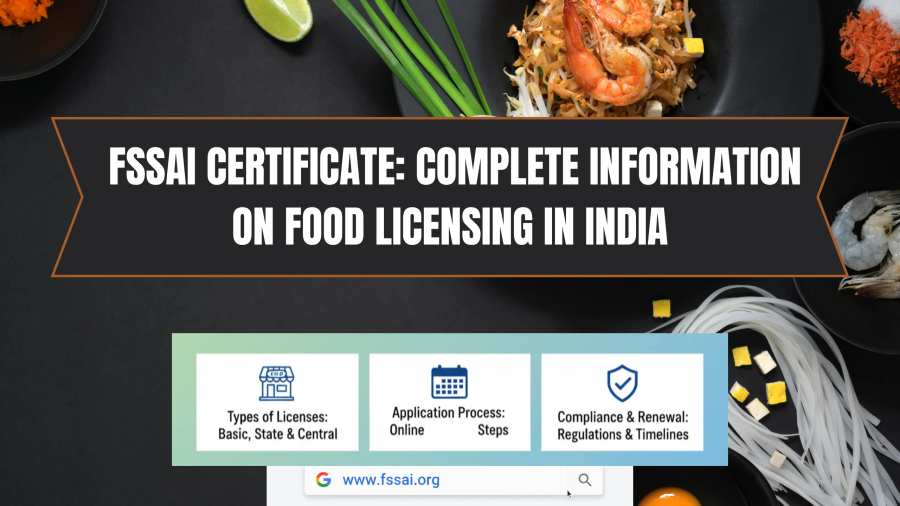
India is a diverse country, and this diversity is reflected not only in its colors but also in its food. Different types of food are available region by region, whether from local vendors or in big restaurants. Food is not only related to health, but it is also concerned with health and hygiene. Consumers should always ensure that whatever they eat is not only delicious but healthy and quality, too. The entire population of India relies upon food, and because of this, the food business is increasing day by day in India. Food buyers need to make sure that whatever food they purchase is safe to consume. And for this, the FSSAI certificate plays an important role. It is quite necessary for those who want to start any kind of food business in India, whether it's a restaurant, a sweet shop, packaged food, a home-based food startup, or a cloud kitchen. It legally validates a food-related business, and due to this, it enhances consumer trust in your brand.
This blog will explain what the FSSAI certificate is, the requirements to get the same, how it can be obtained, and what is beneficial about obtaining one.
FSSAI means the Food Safety and Standards Authority of India. It is a central authority that is
responsible for ensuring that the food products sold in India are safe for consumption and of
good quality.
It basically checks whether food and beverages being sold in the market are safe and hygienic
to consume or not. A license or registration is to be issued by FSSAI for any kind of foodstuff
manufacturer, distributor, packager, or seller. Whenever you would have bought a packet of
biscuits or chips from the market, you would have noticed that FSSAI registration is mentioned
on the package of those foodstuffs.
Food business operators (FBO) operating any food-related business in India without an FSSAI license are considered illegal and may face penalties and fines. An FSSAI license not only gives legal validity but also offers a lot of other benefits, such as:
FSSAI issues three types of licenses depending on the size and annual turnover of the business:
The following businesses shall obtain FSSAI registration or license:
The documents may slightly differ based on the license type, but in general, one should provide the following documents:
The online procedure for this is pretty easy. You can apply by visiting the official website of FSSAI.
The period of validity of the food license is from 1 to 5 years, which is granted to the food
business operator (FBO).
A renewal application should be filed at least 30 days before the expiry date of the validity
period to continue the license granted under FSSAI.
Failure to renew on time may cost you a fine and also the revocation of your license.
Food business operators can use the same FSSAI website to renew it.
A food business without a license from FSSAI may be taken to court for manufacturing or selling
any food products.
It carries a maximum penalty of ₹5 lakh.
For more serious offenses, prison sentences can even be imposed.
Therefore, it is always better to get the proper FSSAI license for your business as soon as
possible.
FSSAI certification is not merely a legal formality but also an identity and credibility badge for your food business. If you really want your food business to be truly sustainable, reliable, and successful in the long term, then the very first thing you need to get started with is an FSSAI license Make your business safe today and earn the trust of your consumers, as safe food is the sure sign of a successful business.